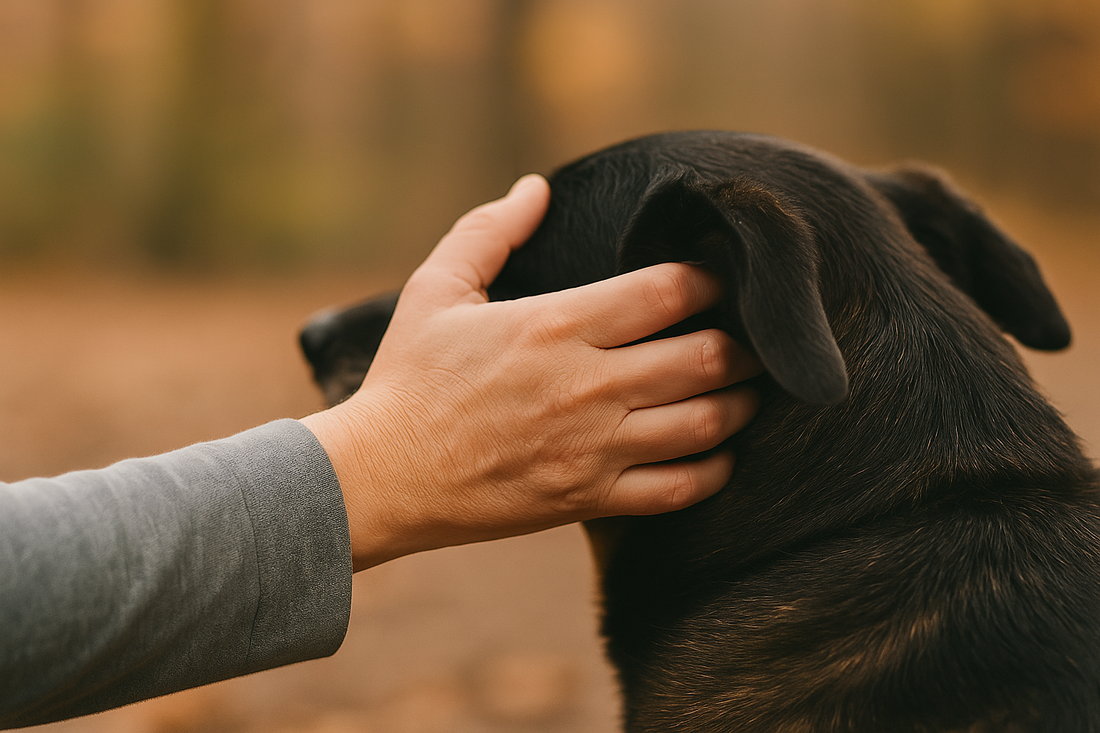
Supporting a Grieving Pet: Emotional Healing After Loss
Share
Introduction
The loss of a pet isn’t just hard on the humans left behind—it can be devastating for the surviving animals in the home, too.
Pets form deep emotional bonds with one another. Whether it’s a pair of cats that curled up together every night or a dog who never left his best buddy’s side, the absence of a companion can create a hole that’s hard to fill.
While they may not shed tears, pets grieve in their own ways. And as their humans, it’s our job to notice those signs and help them process the loss with as much care as we offer ourselves. In this post, we’ll walk through how to recognize grief in pets, the emotional toll it can take, and practical ways to help them heal gently over time.
How Pets Experience Grief
Animals are incredibly perceptive. When a companion dies, they notice the sudden absence in their routines, playtime, and sleeping habits. They may also pick up on your emotions, sensing that something is wrong. As discussed in How Do You Honor a Deceased Pet?, the bonds we share with our companions are profound, and animals feel those shifts as deeply as we do.
Common Signs of Grieving Pets
- Withdrawal or hiding
- Loss of appetite
- Increased vocalization (whining, howling, meowing)
- Restlessness or pacing
- Clinginess or seeking more comfort
- Sleeping more than usual
- Looking for their lost companion
Each pet reacts differently. Some bounce back within days, others mourn for weeks or months. The key is to monitor their behavior and offer consistent, comforting presence.
Why Pet Grief Matters
Too often, the grief of surviving pets goes unnoticed. But ignoring it can lead to long-term anxiety, behavioral changes, or health issues—just like in humans. Unprocessed grief may evolve into:
- Separation anxiety
- Depression or apathy
- Aggression or behavioral regression
- Weakened immune response
Acknowledging your pet’s pain is essential for their emotional health—and shows them they are still loved, even during the hardest transitions. Much like the practices shared in Pet Remembrance Ideas, being intentional in how you support healing can make a lasting difference.
Helping Your Pet Heal After Loss
Supporting your grieving pet doesn’t mean “replacing” the lost companion. It means honoring the bond they had while helping them adjust to their new normal.
Maintain Normal Routines
Stick to feeding, walking, and bedtime routines as closely as possible. Familiar structure provides a sense of stability and control. Predictability gives them the security they need when so much has changed.
Talk to Them
Yes, really. Your tone of voice matters. Speak calmly and lovingly. Pets understand more than we give them credit for, and hearing your soothing words reassures them that they are not alone.
Offer Comfort
Extra snuggles, gentle brushing, or just lying beside them can be healing. Some pets may prefer alone time—watch for cues and give them the space or closeness they crave.
Provide a Memento
Let them spend time with the lost pet’s blanket or toy for a while. Scent holds memory, and this can offer closure. Just as humans find meaning in keepsakes and Pet Sympathy Gifts, animals can also benefit from reminders that help them understand the change.
Use Soothing Sounds
Classical music or soft ambient playlists can help reduce stress and anxiety during quiet times or sleep. Sound therapy has been shown to calm nervous pets and can be an easy, daily way to create peace.
Try Natural Remedies
Consider natural calming aids like CBD oil, Rescue Remedy, or pet-safe herbal blends to support emotional balance. Always consult your vet before introducing supplements or remedies.
When to Seek Help
Sometimes grief lingers longer than expected. If your pet’s sadness lasts more than a few weeks or they refuse food, become aggressive, or isolate completely, consult a veterinarian or pet behaviorist.
They can rule out underlying health issues and suggest personalized grief support techniques—especially for pets with anxiety-prone personalities.
Should You Get Another Pet?
It’s tempting to want to “fill the void” quickly, especially if your surviving pet seems lonely. But adding a new pet too soon can be overwhelming and even distressing.
Consider a New Pet Only When:
- Your grieving pet has emotionally stabilized
- You’ve had time to honor the lost companion
- The new pet is introduced gradually with plenty of space and time to adjust
Sometimes the best gift is patience. Let the idea of a new companion unfold naturally and don’t rush the process.
Conclusion
Grief is a shared journey—for both humans and the animals we love. When a beloved pet dies, the ripple of that loss extends beyond our hearts and into the lives of those they leave behind.
But healing is possible. With time, love, and a few intentional steps, your surviving pet can rediscover comfort, safety, and joy again. By being present and gentle through their mourning, you offer them the same unconditional love they’ve always given you—and that’s the most powerful comfort of all.
Honor the memory of a beloved companion with a personalized Pet Memorial keepsake, and support your grieving pet with calming accessories that bring comfort and peace. Explore the heartfelt collection at Our Gentle Pet.
